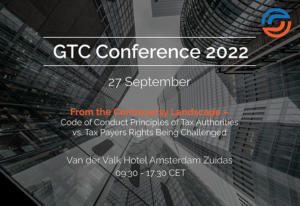China’s State Taxation Administration on 14 October published “Administrative Measures for Non-resident Taxpayers Claiming Tax Treaty Benefits” [Announcement (2019) No. 35].
Announcement (2019) No. 35 will become effective from 1 January 2020, and will replace existing Announcement (2015) No. 60. The new regulation simplifies filing procedures for claiming tax treaty benefits by non-resident taxpayers. It also clarifies the responsibilities of non-resident taxpayers and their withholding agents.
Under Announcement (2019) No. 35, the existing “record-filing” mechanism will be replaced by the “documentation-retaining for inspection” mechanism.
Non-resident taxpayers must self-assess their eligibility to enjoy tax treaty benefits, file the reporting form (via their withholding agents, if any), and retain specified supporting documents for any post-filing inspection by tax authorities.
Announcement (2019) No. 35 also reduces the amount of information to be filled in the reporting form.
Non-resident taxpayers are required to provide information for only 17 items in the revised form, including the taxpayer’s name, contact information, the treaty article, the amount of tax reduced or exempted.
The supporting documentation that must be retained by non-resident taxpayers under Announcement (2019) No. 35 is similar to the filing documentation specified under Announcement (2015) No. 60. Announcement (2019) No. 35 stipulates, however, that supporting documents that justify “beneficiary owner” status under the treaty article on dividends, interest, or royalties should also be retained.
MNEs should be aware that even though Announcement (2019) No. 35 simplifies the reporting form and reduces paperwork for claiming tax treaty benefits, due care and tax responsibility of non-resident taxpayers is not alleviated. Non-resident taxpayers are still responsible for the authenticity, accuracy, and legality of the reporting form and retained documents.
It should be noted that self-assessment under Announcement (2019) No. 35 can increase tax uncertainty for MNEs. For example, MNEs may find it challenging to ensure that the determination of “beneficial owner” is correctly self-assessed and the tax authorities will not disallow the tax treaty benefits claimed for dividends, interest, and royalties in a post-filing inspection.
Further, if eligibility for tax treaty benefits is denied in a subsequent administration process by tax authorities, non-resident taxpayers would be regarded as not fulfilling tax reporting responsibilities, and tax authorities can impose a late payment surcharge on underpaid tax.





